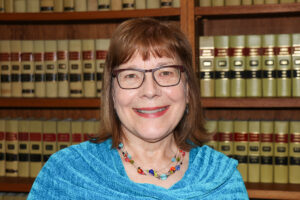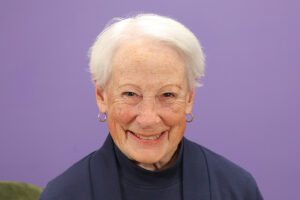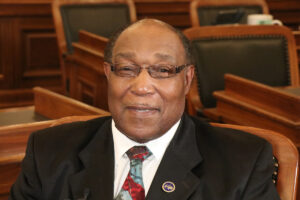Interview of Evelyn Wilson, April 21, 2025
Interviewed by Richard Ross
Justice Evelyn Wilson’s interview provides an excellent explanation of the unique role of the Kansas Supreme Court in very colloquial terms. She shares her personal health struggles and deep commitment to the responsibilities of her position that led her to the decision to retire.
Justice Wilson provided a very thorough explanation of how Supreme Court Justices are selected in Kansas and explained the importance of the judicial branch remaining separate from the other two branches of government and emphasizing that each branch was designed to be completely separate. The role of the Judiciary is to interpret the law. Show MoreShe believes there is always a method to make the law better, to change the law, if you work within the process that was designed by the writers of the U.S. Constitution. Her closing admonition, “…we all have a job to do, and that job is so important.” It’s to vote. “The Supreme Law is the people’s law, not a king. As long as we protect the republic, that will remain the case. And if we don’t protect the republic, it might not be.” Show Less






